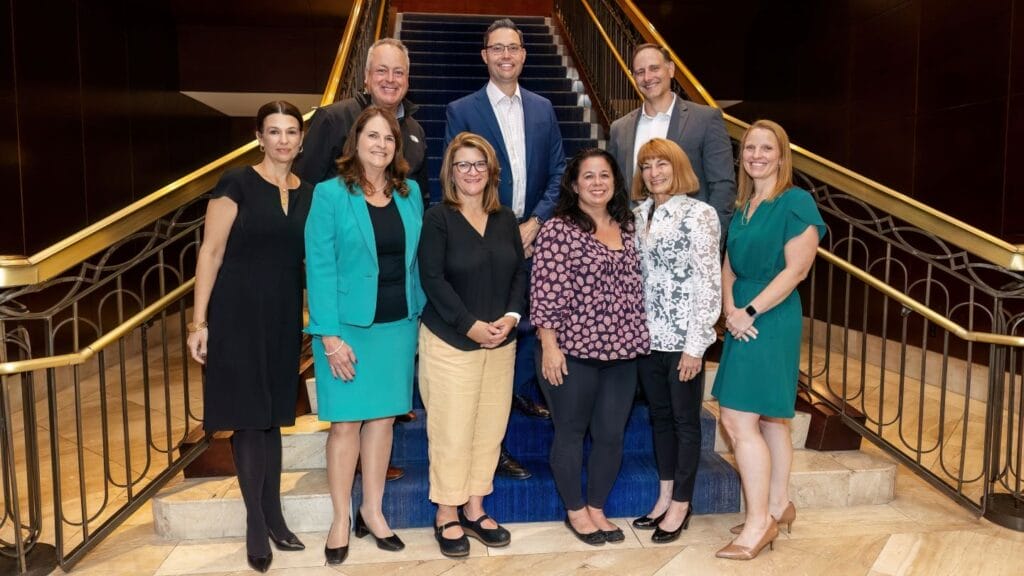
When he bought his own nursing home company back in 2016, Ted LeNeave adopted an upside-down leadership philosophy, one that gave his onsite employees broad say in how to run their facilities and empower their coworkers.
But the Accura Healthcare CEO and founder found himself in another kind of upside-down situation in 2022. With 34 skilled nursing facilities, most of them rural and most of them serving a predominantly Medicaid population, LeNeave’s company was taking a beating by state reimbursement rates that had failed to keep up with staggering inflation.
“For us to be a successful Medicaid provider, it starts with relationships at the facility level. We have got to be efficient and watch the dollars, watch our spending. But we’re not starving the facilities of supplies or staffing. We’re giving them everything they need to be successful,” LeNeave told McKnight’s Long-Term Care News earlier this month.
But with Medicaid rate increases coming only biennially in Iowa, where Accura does the bulk of its business, doing right by staff and residents led to hard choices about the company’s future. While all of its buildings remained operational, Accura’s journey over the last year is not unlike those of other providers whose leaders have chosen to walk away rather than take on ever more debt in a sector with crippling staffing and regulatory burdens.
“Last year was the worst year of my career from a financial standpoint, or for financial stability really,” said LeNeave, a licensed nursing home administrator who cut his teeth at single sites before becoming an executive at Kindred in the early 2010s.

“When it got tough, I had to make a decision: Do I go borrow more money? Do I drain my life’s savings? Or do I just pack it up and sell it? I could have just walked away and said, ‘I’m done, I’ll tell the REIT companies, you can have these back.’ A lot of people are doing that. But I was chasing my tail trying to keep the doors open.”
Knowing rate increases would eventually come, and in conversation with the governors of the four states where Accura does business, LeNeave negotiated term extensions with everyone from vendors to the landlords of the Accura buildings he doesn’t own.
He also put on hold rent payments to him for the buildings he owns personally, and he declined disbursements beyond his salary. But LeNeave said he didn’t stop staff wage increases and he also added to healthcare benefits during the low point.
Recovery shaping up
Those strategies helped carry Accura through the darkest days to today. The chain has privatized some patient rooms, increased census systemwide and started to catch up on repayments. It has also cut nurse agency use by 65%, often attracting full-time staff from temporary nurses who like the company’s culture and want to be able to stay on board as LeNeave continues to phase out agency reliance.
In all, the company has about 2,500 employees, including in the company’s typically co-located assisted living locations.
Accura is often the biggest employer in a community it serves; it therefore holds a link to employees’ personal and professional lives that is unique, or at least more apparent in rural communities.
“For us, our company is all about culture,” said LeNeave, whose white board reminded him not to sacrifice that as it considered cost-cutting strategies. “It’s all about relationships.”
Often, it was local leadership that found ways to reduce costs without impacting patient care, or identified new ways to drive revenue, LeNeave said. In the midst of his borrowing spree, one facility leader talked him into expanding an Alzheimer’s unit into an entire building. The real estate investment trust that owned the building agreed to share the $1 million-plus renovation fee, and the building was approaching full census after reopening this summer.
Between July and August, the company as a whole saw an average census uptick of 30 patients per day. Supplying a needed service has empowered LeNeave in his conversations with local and state governments.
National leadership
It’s governmental relationships he’s focused on to sustain the company and the broader sector’s fiscal recovery.
Already the regional multifacility representative on the American Health Care Association’s board, LeNeave is running for board chairman in the election to be held at the organization’s convention early next month.
“The vote for the next chair will be one of the most important that states [association leaders] have cast in many, many years because of all the challenges in front of us,” LeNeave said. “We know we’re eventually going to get a new CEO at AHCA. We also know that mandated staffing is here … and for the next couple of years we’re going to be having discussions with legislators and CMS about how we manage through this.”
And while he wants to continue his advocacy at the national level, LeNeave doesn’t plan to let up on the local governments responsible for critical skilled nursing lifelines. Strengthening relationships with state lawmakers may help providers like him avoid another round of daunting financial challenges.
“We’re called when things are getting hard for the sector, and we bring a lot of credibility. We’re very realistic,” he said of his Accura leadership team’s work with state officials. “We understand why you’re asking for these regulations, but let’s be transparent. We want to show you where we are financially and how hard it is to run a facility in these rural areas.”




